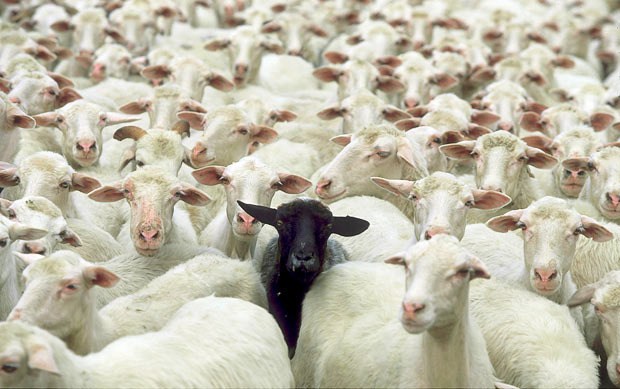A friend told me a story recently, and it so purely reveals a dynamic we do not often see clearly, I'm delighted to discover it. I think it is quite a profound insight. He is a member of an online group discussing a new cryptocurrency, one of many hundreds of similar groups, each of which is in a tiny ecosystem within the larger ecosystem of cryptocurrencies. Each of these smaller groups is usually led by a charismatic and/or brilliant innovator, with a core team surrounded by advocates and on the periphery, detractors.

The leader of the group one day asked him privately in a casual and friendly manner why he was so consistently hostile and negative in discussions. Since he was having fun overall, he was surprised that anyone could say this. Curious, he pulled a few other people aside one by one and asked them if he seemed hostile or negative to them. Most of them would not answer the question directly. But in their vague and wordy answers he was able to see hints that they did perceive him that way, just couldn't say it. Finally one gave a direct answer: "No! I love your contributions, they're great, bringing up real concerns that we all need to think about."
As he pondered this paradox of contradictory opinions, it occurred to him that the people who perceived him as hostile were fully invested in this single cryptocurrency alone, while his interests were more varied. He was involved in numerous other similar discussions on all levels of the larger ecosystem.
To sum: people who thought he was hostile could not say so directly nor could they perceive him objectively. They were seeing "only the good" possibilities of their given crypto, and thus found his reasonable questions and comments to be attacks. On the other side, people who thought his insights were good and useful did not see that he was hostile or negative.
Thinking about this dynamic a bit, this appears to explain a dynamic in conversations with people who have and do not have critical thinking. I believe this is a description of something that happens in almost every group ever, but not often is it probed so concisely. As a fan of Rene Girard's thoughts on scapegoats, I think it goes quite deep. There are many more insights buried in this gem.
I'm sure there are experts who know all about this particular dynamic and recognize it immediately, but for me, it's really insightful about the nature of people who never learned to think critically, and something I will think about for some time to come.
It appears that people who do not have critical thinking skills are only seeing part of the picture. They invest all their trust in someone who sees more of the picture, and then defend that other person with all their ability. Thus, they see anyone who is not doing the exact same thing as a threat to the whole group.
On the other hand, people who do have critical thinking skills are more able to trust their own judgments and therefore do not invest as much trust in others, and thus see things more on neutral terms. They do not have a need to be defensive, so they aren't, at least not in this dynamic (I've seen critical thinkers who were defensive, but it happened on very principled lines, not personal.)
This is related to binary vs ternary thinking, and of course the scapegoat mechanism, but this is enough for now, leaving that analysis for another day.